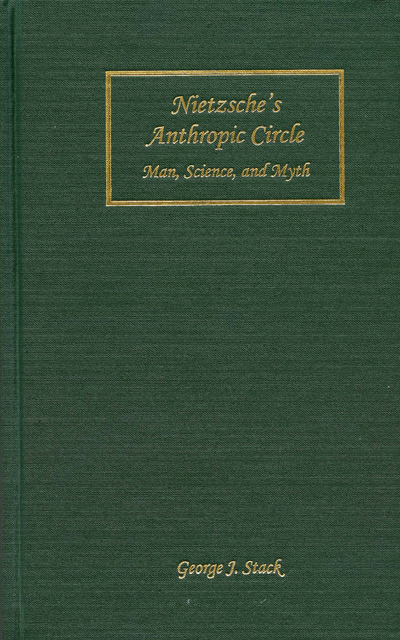Book contents
- Frontmatter
- Dedication
- Contents
- Preface
- Editions and Abbreviations
- 1 Anthropomorphic Projection
- 2 Agnosticism
- 3 A Dynamic Theory of Nature
- 4 Perspectivalism: Knowledge/Interpretation
- 5 Fictionalism in Science
- 6 The Structuralist Perspective
- 7 Evolutionary Epistemology
- 8 Tragic Knowledge and a Will-to-Power Psychology
- 9 The Cosmic Will to Power as Fable
- Notes
- Selected Bibliography
- Index
2 - Agnosticism
Published online by Cambridge University Press: 23 March 2023
- Frontmatter
- Dedication
- Contents
- Preface
- Editions and Abbreviations
- 1 Anthropomorphic Projection
- 2 Agnosticism
- 3 A Dynamic Theory of Nature
- 4 Perspectivalism: Knowledge/Interpretation
- 5 Fictionalism in Science
- 6 The Structuralist Perspective
- 7 Evolutionary Epistemology
- 8 Tragic Knowledge and a Will-to-Power Psychology
- 9 The Cosmic Will to Power as Fable
- Notes
- Selected Bibliography
- Index
Summary
Today every trace of dogmatism is fading away.
Nietzsche, NachlassAlthough Nietzsche often expresses unjust criticisms of Kant's thought, and did not have a detailed understanding of Kant's critique of knowledge, he was profoundly influenced by his epistemic analyses. The only work of Kant's that he seems to have studied with care was the Critique of Judgment. He read it in preparation for a brief, unpublished, and none-too-original essay entitled “On Teleology.” That Nietzsche wrote this essay when he was twenty-three, and made notes on Kant in 1888 indicates the longevity of his struggle with and against a formidable philosophical foe.
Interestingly, in this early study of Kant's Critique of Judgment Nietzsche hesitates to adopt Kant's notion of the relation between teleology and life, but is sympathetic to the emphasis upon the applicability of a mechanistic explanation to the natural world and its inapplicability to organic life. We can already see the emergence of Nietzsche's philosophy of life, his conception of the unique nature of living beings, his preoccupation with “forms of life,” and with the belief that we can comprehend life only via human analogy.
Nietzsche was familiar with Kant's philosophy primarily through critical commentaries such as F. A. Lange's discussion of Kant in The History of Materialism, Schopenhauer's treatment of Kant in The World as Will and Representation, and Kuno Fischer's volume on Kant in his Geschichte der neureren Philosophie. Although Nietzsche's approach to Kant's analysis of knowledge is typically critical, he absorbs much of the subjectivistic slant of the first edition of the Critique and some of Kant's terminology.
Nietzsche's early formulation of a pragmatic account of knowledge owes a great deal to his understanding of Kant's conception of practical reason. In addition, the emphasis upon the questionable nature of transcendental metaphysics, as well as the stress on agnosticism concerning actuality, which one finds throughout his writings, was indebted to Kant’s general orientation. Nietzsche's focus upon “conditional knowledge” and his conception of the fictive nature of basic categories of thought were suggested, in an indirect way, by Kant's critical philosophy and its skeptical implications.
- Type
- Chapter
- Information
- Nietzsche's Anthropic CircleMan, Science, and Myth, pp. 19 - 41Publisher: Boydell & BrewerPrint publication year: 2005



